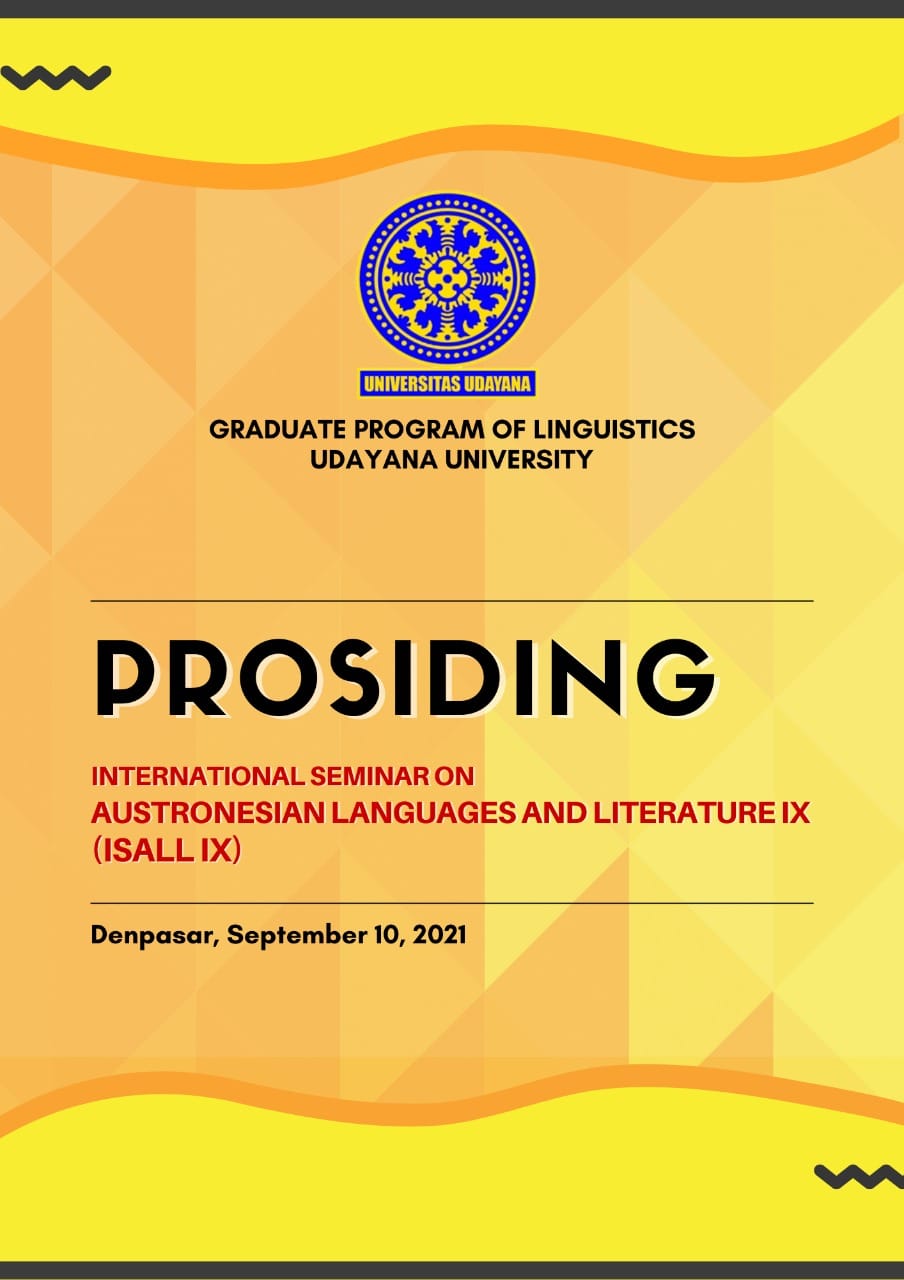Pujian Sebagai Strategi Negosiasi Bahasa Jepang
Abstract
Negotiation strategies in Japanese need to be understood and used properly to get an agreement or final decision that the speakers expect. This negotiation strategy is reflected in expressive speech acts, one of which is praising used by speakers for their partners in the business field. Related to the negotiation strategy, a research was conducted that aims to identify the role of praise in negotiating strategies in Japanese.
In this study, the classification of the topic of praise by Manes and Wolfson, the classification of the function of praise by Herbert, Wolfson, Manes, and praise response strategies by Herbert were used. This research is a qualitative research and uses a data source from a Japanese drama entitled Eigyou Buchou Kira Natsuko (2016), which is an office or corporate television drama genre.
The results of the study indicate that expressive speech acts in the form of praise are one of the negotiating strategies used by speakers to reach agreement. In addition, to support the results of this study, it was also found that several forms in Japanese, such as ~te itadakemasen ka and ~sasete itadakemasen ka, were proven to receive a positive response from the speech partners as a form of request for permission. The results of this study are expected to provide an overview as well as an understanding of the introduction of negotiation strategies through expressive speech acts in Japanese offices or companies.
References
Herbert, R.K. (1990). Sex based differences in compliment behaviour. Journal of language in society, 19, hlm. 201-224.
Homma, M &Yukawa, K., (2008). Home hotoba waakubukku. Tokyo : PHP.
Miyazaki, M., & Goshi, S. (2009). Bijinesu nihongo 30 jikan. Tokyo: 3A Corporation.
Searle, J.R. (1969). Speech act: an essay in the philosophy of language. Cambridge: Cambridge University Press.
Sunagawa, Y., dkk. (2002). Nihongo bunkei jiten.Tokyo: Kuroshio.
Shimizu, T. (2013). Chukyu gakusha no tame no burasshu appu nihongo kaiwa. Tokyo: 3anet work.


